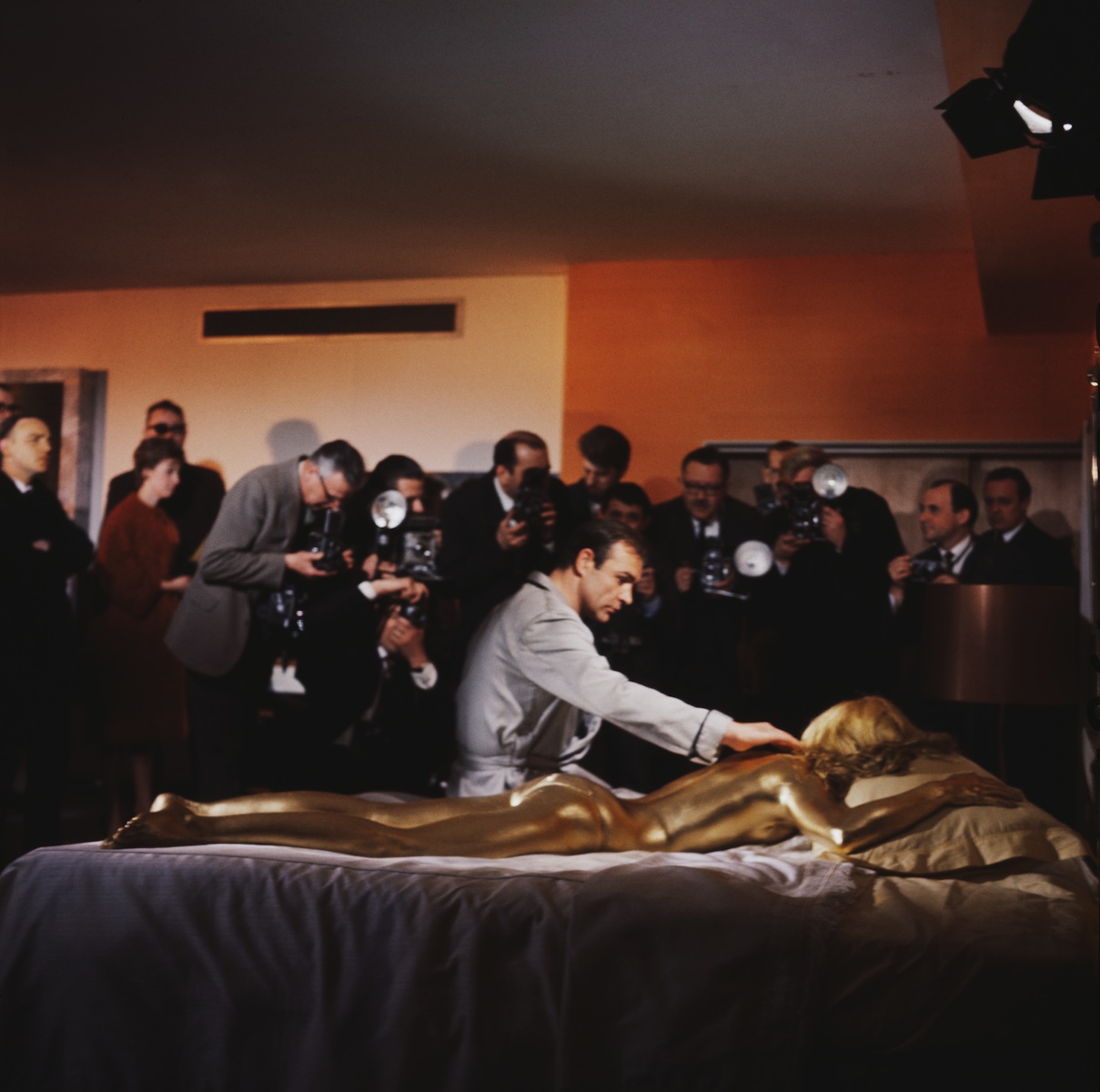
By the time the movie Goldfinger premiered in London 50 years ago Wednesday, on Sept. 17, 1964, that name was already familiar.
The novel on which the movie is based had been out for a few years, and Sean Connery had been making waves as James Bond on film since 1962. In a 1964 profile of the actor, TIME had gushed that the “polite, amiable, tall, dark, and loose-hung Scot” has so much character that he “stands out like a sea horse in a colony of jellyfish” in Hollywood, and that “his individualism is just right for Agent Bond, who makes steely love, is a wine snob, and likes to rub people out without spilling blood on the carpet.”
But that’s the not the only reason the name might have rung a bell.
Auric Goldfinger, it turns out, isn’t the only newsworthy Goldfinger out there. Well before his name became synonymous with trying to rob Fort Knox, there was Isaac Goldfinger, a New York City deli owner who got himself in a pickle over kosher meats.
As TIME reported in its Dec. 20, 1937, issue, Isaac Goldfinger found himself in the middle of a dispute between the Butchers’ Union and Ukor-brand kosher meats. Ukor was the only kosher meat sold in New York that wasn’t union-made, and Goldfinger’s deli happened to sell Ukor meats. The deli, at which Mr. Goldfinger was the owner and sole employee, was picketed by the union and estimated that the controversy was costing him $100 a week. When he tried to get an injunction against the picketing, the union took the case to the court of appeals. The result (Goldfinger v. Feintuch, 276 N.Y. 281) set an important precedent in labor law, as TIME explained:
Last week in a nationally noted decision the court ruled against Isaac Goldfinger. Though confirming the injunction as it applied to obstreperous picketing tactics, the court held that secondary picketing was perfectly legal provided: 1) it was peaceful, and 2) it was directed not against Mr. Goldfinger but against the Ukor products he insisted on handling. Said the opinion: ‘Where the manufacturer disposes of the product through retailers in unity of interest with it, unless the union may follow the product to the place where it is sold and peacefully ask the public to refrain from purchasing it, the union would be deprived of a fair and proper means of bringing its plea to the attention of the public.’
In other words, the union should have no grievance with the other deli products — they couldn’t urge a boycott of, say, the brand of bread that happened to be sold at a deli that also sold Ukor meat — but they were perfectly welcome to protest the meat at the place where the public would decide whether or not to buy it.
The story made the front page of the Brooklyn Eagle, where it was noted that the deli in question was located at 50 Avenue C in Manhattan — it’s an address at the corner of Avenue C and East Fourth Street where, appropriately enough, a deli still stands today.
Read a 1964 profile of Sean Connery here, in TIME’s archives: Canny Scot
More Must-Reads from TIME
- Cybersecurity Experts Are Sounding the Alarm on DOGE
- Meet the 2025 Women of the Year
- The Harsh Truth About Disability Inclusion
- Why Do More Young Adults Have Cancer?
- Colman Domingo Leads With Radical Love
- How to Get Better at Doing Things Alone
- Michelle Zauner Stares Down the Darkness
Write to Lily Rothman at lily.rothman@time.com